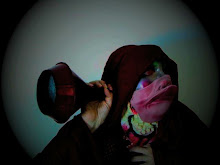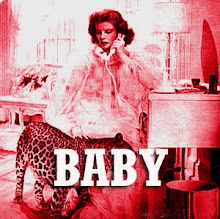quote from Jacket article
This is what you should know--this is not like any other POETRY reading. I mean people heckle and wisecrack and shout and wear bunny ears and pee themselves while crying and screaming ‘Awwwwwwwww Yeah!’ and ‘Cid Corman!’ Bruce Andrews actually laughs in the audience.
—Anne Boyer, “A Draft: What Happened at the Flarf Festival”
'That Flarf did start as a coterie—and that the original intent of the Flarf poets was neither to democratize the world via the Web nor to go undercover as a stupid person who reports back to readers—is clear from Sullivan’s account of the group’s genesis, which also underscores exactly how difficult it is to present Flarf as a viable political intervention. Central to any account of the genesis of Flarf is Sullivan’s poem “Mm-hmm,” which he characterizes as “the most offensive poem I could manage.” Sullivan submitted “Mm-hmm” to the poetry.com website, which is essentially a vanity press that accepts anyone’s work and then seeks to sell the poets bound copies of their work and that of other “winners” (“The Flarf Files”).
Mm-hmm
Yeah, mm-hmm, it’s true
big birds make
big doo! I got fire inside
my “huppa”-chimp(TM) 5
gonna be agreesive, greasy aw yeah god
wanna DOOT! DOOT!
Pffffffffffffffffffffffffft! hey!
oooh yeah baby gonna shake & bake then take
AWWWWWL your monee, honee (tee hee) 10
uggah duggah buggah biggah buggah muggah
hey! hey! you stoopid Mick! get
off the paddy field and git
me some chocolate Quik
put a Q-tip in it and stir it up sick 15
pock-mocka-chocka-locka-DING-DONG
fuck! shit! piss! oh it’s so sad that
syndrome what’s it called tourette’s
make me HAI-EE! shout out loud
Cuz I love thee. Thank you God, for listening! 20
(“The Flarf Files”)
Despite (or because of) its deliberate awfulness, the poem displays some clear affinities with well-known avant-garde poetry of the early 20th century. Aside from the intentional misspellings and phonetically rendered flatulence, which calls to mind some of the more puerile typographical devices used by Marinetti, the poem derives much of its comedic force from a common trait of Dadaist poetry—its rapid shifts of subject matter—with the “stoopid Mick” references coming from nowhere after a line of nonsense that evokes, perhaps intentionally, some of the facile appropriations of “African” speech rhythms in poems by Tzara and Huelsenbeck...' Yeah, mm-hmm, it’s true
big birds make
big doo! I got fire inside
my “huppa”-chimp(TM) 5
gonna be agreesive, greasy aw yeah god
wanna DOOT! DOOT!
Pffffffffffffffffffffffffft! hey!
oooh yeah baby gonna shake & bake then take
AWWWWWL your monee, honee (tee hee) 10
uggah duggah buggah biggah buggah muggah
hey! hey! you stoopid Mick! get
off the paddy field and git
me some chocolate Quik
put a Q-tip in it and stir it up sick 15
pock-mocka-chocka-locka-DING-DONG
fuck! shit! piss! oh it’s so sad that
syndrome what’s it called tourette’s
make me HAI-EE! shout out loud
Cuz I love thee. Thank you God, for listening! 20
(“The Flarf Files”)














No comments:
Post a Comment